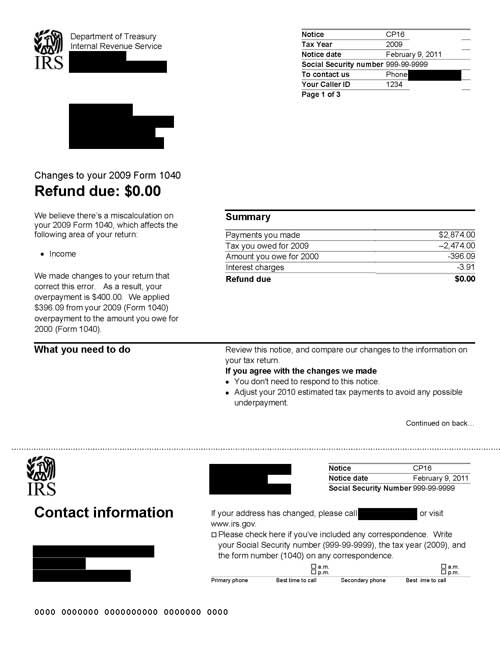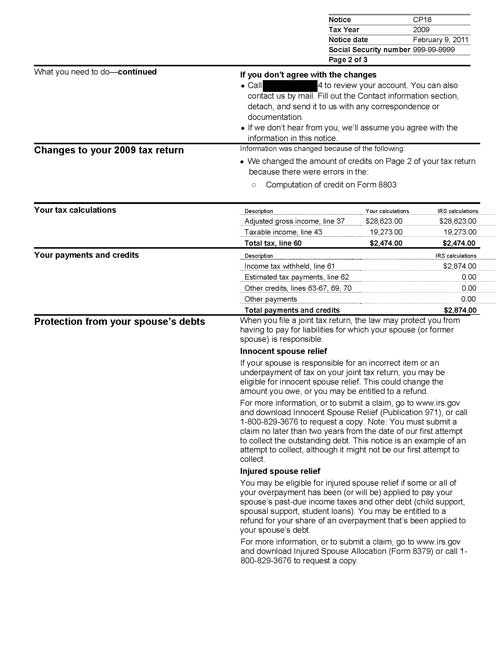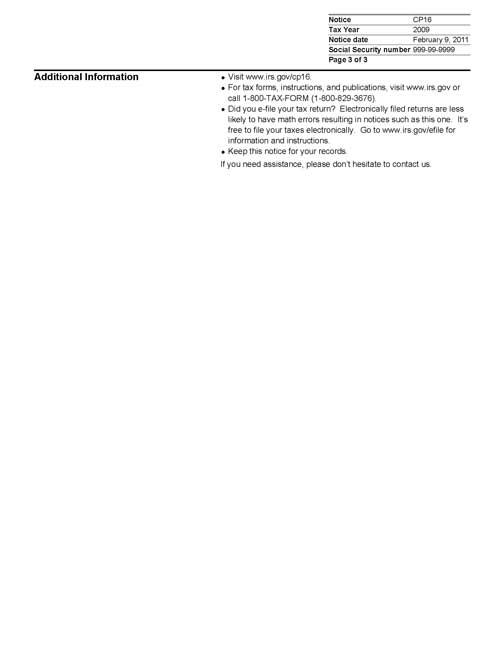IRS Notice CP16
It is critical to know your rights before turning any information over to the IRS. San Diego Tax Attorney William D. Hartsock offers this advice.
Why did I receive a CP16 Notice from the IRS?
If you have received a CP16 Notice from the IRS, it usually means the following: (1) that the IRS believes there was a miscalculation on your tax return, (2) that the IRS has made what it considers to be necessary corrections to your tax return, and (3) that because you owe other tax debts, the IRS has applied all or a part of your refund to those debts. The notice will describe how the IRS applied your refund to other tax debts that you owe.
This could affect any Income Tax Audits & Appeals that you are involved in, as well as IRS Tax Litigation or Tax Collections actions.
Whenever you receive a CP16 Notice, you should:
- Read the CP16 Notice carefully, especially the part explaining the miscalculation the IRS believes was made on your return, changes the IRS made to your return to correct the miscalculation(s), any other tax debts you owe where the IRS applied any overpayment you made.
- If you agree with the IRS’s explanation about a miscalculation on your return and how the IRS applied any overpayment you made to another tax debt that you owe, be sure to make the changes on the copy of your tax return that you kept when you filed the return.
- If you do NOT agree with the IRS’s explanation about a miscalculation on your return and/or you do NOT agree with how the IRS applied any overpayment you made to another tax debt that you owe, contact a Tax Attorney such as the ones at www.TaxLawFirm.net to discuss the best strategy for resolving the discrepancy with the IRS. Be sure to contact a tax law professional right away, because the IRS must generally be advised in writing about a discrepancy within 60 days of the date on the CP14 Notice you received. If the discrepancy is not addressed properly, your tax return could be referred for audit.
Answers to Frequently Asked Tax Law Questions:
Why is the IRS reviewing my return?
While most returns are accepted by the IRS as filed, a certain number of returns are selected for examination. The IRS examines some income tax returns to verify that the income, expenses, and credits reported on the return are accurate. The IRS selects tax returns for examination using various methods including random sampling, computerized screening, and comparing information the IRS has received that relates to the return, such as W-2 and 1099 forms. Just because your tax return was selected for examination does necessarily mean that the IRS believes you made an error or were dishonest on your return.
The following images are an example of what an IRS Tax Notice CP16 actually looks like.
This sample notice is for example purposes only. The case facts and figures on your notice will vary according to the specifics of your case.





Comments (0)